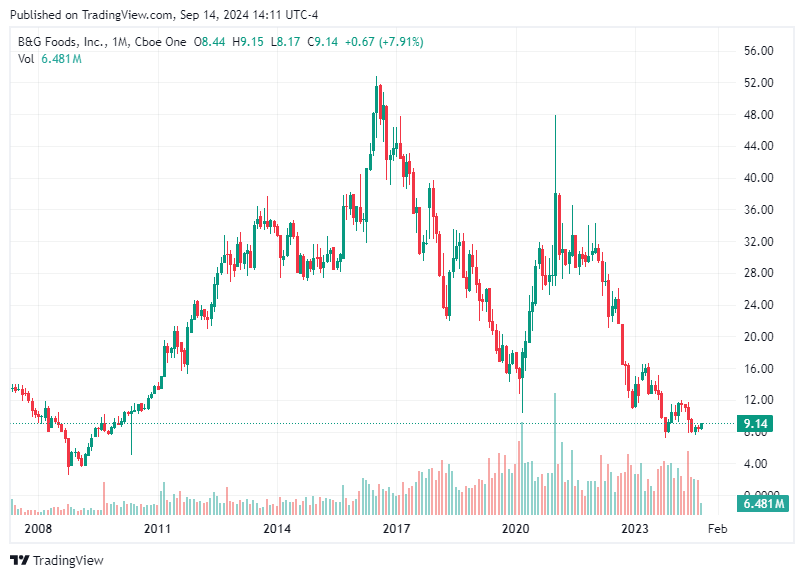Deli Meat Giant Closes Virginia Plant Amid Listeria Outbreak
Boar's Head Closes Virginia Plant Amid Listeria Concerns: An In-Depth Examination.

Disclaimer: The following article is intended for informational purposes only and should not be taken as professional advice. The details presented are based on publicly available information regarding the closure of Boar's Head's Virginia plant amid listeria concerns.
We are working endlessly to provide free insights on the stock market every day, and greatly appreciate those who are paid members supporting the development of the Stock Region mobile application. Stock Region offers daily stock and option signals, watchlists, earnings reports, technical and fundamental analysis reports, virtual meetings, learning opportunities, analyst upgrades and downgrades, catalyst reports, in-person events, and access to our private network of investors for paid members as an addition to being an early investor in Stock Region. We recommend all readers to urgently activate their membership before reaching full member capacity (500) to be eligible for the upcoming revenue distribution program. Memberships now available at https://stockregion.net
The recent announcement by Boar's Head to indefinitely close its Virginia plant has sent ripples through the food industry and raised public health concerns. The closure comes after a listeria outbreak linked to nine deaths, prompting the Sarasota, Florida-based company to take decisive action to prevent further incidents.
The Impact on Boar's Head and the Food Industry
The decision to close the Jarratt, Virginia plant is not merely a setback for Boar's Head but also a significant moment for the entire food industry. Boar's Head, known for its quality deli meats, has built a reputation over many years. The shutdown reflects the company's commitment to consumer safety, even at the cost of operational disruptions. The closure highlights the food industry's vulnerability to bacterial outbreaks and the necessity for stringent safety standards.
Companies are reminded of the potential repercussions of lapses in safety measures. The food industry at large may see an overhaul in regulatory practices, prompting businesses to invest more heavily in safety protocols and technology to detect and eliminate contaminants. One of the most immediate and tangible impacts of the plant closure is on the workforce. With "hundreds" of employees affected, the economic repercussions are profound. As one of the area's largest employers, Boar's Head's decision leaves a void in the local job market. Employees now face uncertainty, with the need to find alternative employment or retrain for different roles in an already challenging economic climate.
The company has expressed its understanding of the situation's gravity, emphasizing that the closure was a necessary measure under the circumstances. For employees, this decision may mean adapting to new career paths, seeking support from local employment services, or even relocating for opportunities elsewhere.
The Troubled History of the Jarratt Plant
The Jarratt plant's history has been less than stellar, with numerous instances of noncompliance reported by government inspectors over the past year. These include findings of mold, insects, liquid dripping from ceilings, and residue on walls, floors, and equipment. Such issues point to systemic problems that may have contributed to the listeria outbreak.
This troubled history raises questions about the monitoring and maintenance of food production facilities. Regular inspections and compliance with food safety regulations are crucial to prevent such occurrences. The Jarratt plant serves as a cautionary tale, emphasizing the need for constant vigilance and adherence to safety standards. Listeria monocytogenes, the bacteria at the heart of this crisis, poses a severe threat to food safety. Known for its resilience, listeria can survive and even thrive in refrigerated environments, making it particularly insidious in food production settings. Each year, approximately 1,600 people in the United States contract listeria infections, with about 260 fatalities, according to the Centers for Disease Control and Prevention (CDC).
Listeriosis, the infection caused by listeria, can have serious symptoms, including fever, muscle aches, nausea, and diarrhea. Particularly vulnerable are pregnant women, newborns, older adults, and individuals with weakened immune systems. The long incubation period—up to 10 weeks—makes it challenging to trace infections back to their source, complicating efforts to control outbreaks.
Boar's Head's Response and Future Plans
In response to the outbreak, Boar's Head has taken comprehensive steps to address food safety concerns and restore public trust. The company has announced the permanent discontinuation of liverwurst production, the product linked to the outbreak.
Boar’s Head is restructuring its food safety management by appointing a new chief food safety officer and establishing a safety council with independent experts. This council will include Mindy Brashears, a former food safety chief at the U.S. Department of Agriculture, and Frank Yiannas, a former deputy commissioner for food policy at the U.S. Food and Drug Administration. These steps signal Boar's Head's commitment to not only resolving the current crisis but also preventing future incidents and contributing to industry-wide improvements in food safety protocols.
The closure of Boar's Head's Virginia plant amid a listeria outbreak is a critical moment for the company and the food industry. It highlights the need for stringent safety standards and the impact of such outbreaks on businesses, employees, and consumers. As Boar's Head navigates this challenging period, its actions may serve as a blueprint for other companies facing similar crises.
Disclaimer: This article is for informational purposes only and does not constitute professional advice. The views expressed are based on publicly available information regarding the situation with Boar's Head and the broader context of food safety.


